Iran rules out US talks before Trump takes office

Iran has no current intention to engage in dialogue with Washington, citing a lack of appropriate grounds for such discussions, Iranian Foreign Minister Abbas Araghchi told The New Arab on Monday.

Iran has no current intention to engage in dialogue with Washington, citing a lack of appropriate grounds for such discussions, Iranian Foreign Minister Abbas Araghchi told The New Arab on Monday.
"We are waiting to see how the new administration formulates its policies, and then we will determine our course of action," he added in comments released on Tuesday.
On Iran's negotiations with Europe over the nuclear issue, Araghchi, a key architect of the 2015 nuclear agreement, noted that Tehran has "many reasons to be pessimistic."
On Friday, German, British, and French political directors met with Iran's representative, Kazem Gharibabadi, in Geneva to discuss Tehran’s nuclear program and sanctions, bilateral issues, and the regional situation, according to a post by the German Foreign Office on X. The statement noted that the parties agreed to continue diplomatic dialogue soon, but no tangible progress was announced.
Gharibabadi similarly reaffirmed Iran's general commitment to dialogue and engagement, though his comments indicated little progress beyond agreeing to continue discussions.
Notably, the US State Department had previously announced that the United States would not participate in the talks between Iran and the three European powers.
“We have made it clear that Iran must provide full cooperation with the IAEA without further delay. And we’ll continue to closely coordinate with the Governments of France, Germany, and the United Kingdom,” spokesperson Matthew Miller said last week.
Tehran currently holds enough enriched uranium to produce four nuclear bombs, according to estimates by the IAEA. Although uranium enriched to 60% purity is not yet suitable as fissile material, Iran could refine it to weapons-grade levels within 2-3 weeks. This status, known as a nuclear-threshold position, implies that Iran could quickly transition to a nuclear-armed state if it has the technical capability to assemble a functional weapon.
Meanwhile, the United States is gearing up to reintroduce strict measures against Iran under President-elect Donald Trump. According to The Wall Street Journal, the incoming administration plans to reinstate the “maximum pressure” campaign, designed to limit Iran’s economic resources used to support armed groups and other hostile activities.
Last week, Mike Waltz, Trump’s incoming national security adviser, said, “The change you’re going to see is more focus on Iran.” During Trump’s previous term, his administration imposed sweeping sanctions on Iran’s oil sector to hinder its nuclear program and diminish its regional influence.
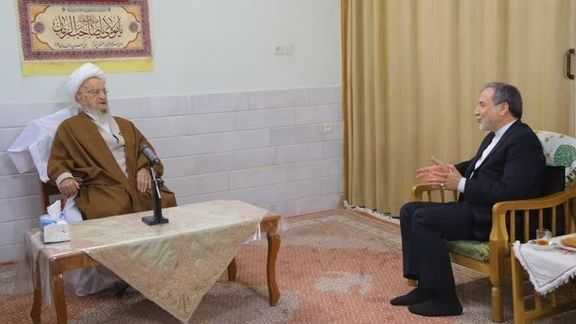
Foreign Minister Abbas Araghchi visited the homes of four senior clerics in Qom last week to secure their backing for negotiations with the West as the country finds itself ever weaker on the world stage.
State-run news outlets, including IRNA and ISNA, framed the visits as briefings on foreign policy and regional developments, highlighting Araghchi's portrayal of the recent ceasefire between Israel and Hezbollah as a victory for Hezbollah and a defeat for Israel.
This outreach to senior Shiite clerics, or Grand Ayatollahs, aims to shore up support from the country's ultra-hardliners, suggesting that negotiations with the West do not compromise the Islamic Republic’s ideological principles which have so long spoken of the West as the enemy.
The general public largely backs negotiations for potential financial relief in exchange for political, military, or nuclear concessions, no longer seek reassurance from clerics, many believing their influence has waned due to the Islamic government’s mismanagement of the economy and overall decline.
Recent protests by teachers and pensioners, as well as widespread demonstrations since 2018, have seen calls for the government to prioritize domestic issues over foreign commitments such as the wars in Lebanon and Gaza, led by Iran's military allies around the region.
The clerics Araghchi met are elderly and often in poor health, with their public statements typically prepared by aides. Ayatollah Abdollah Javadi Amoli (born 1933), the youngest of the group, highlighted the importance of valuing Iran’s human resources over its oil and gas wealth. Notably, he is the only cleric among the four who has previously addressed the financial struggles of Iranians and urged the government to take action.
In a public statement, Ayatollah Hossein Nouri Hamadani (born 1925) emphasized strengthening the "axis of resistance," or Iran's military allies around the region, warning against trusting Israel’s ceasefire promises in the deal with Iran's most powerful ally Hezbollah in Lebanon.
He also called for bolstering Syria in its fight against ‘takfiris,’ a term Shiites often use to describe Sunni Muslim extremists as the country now descends deeper into civil war.
Ayatollah Nasser Makarem Shirazi (born 1926) also publicly cautioned against trusting the United States and the West, urging the government to assist Lebanon and Gaza in rebuilding areas damaged by Israeli attacks since war broke out last year following Iran-backed Hamas's invasion of Israel.
Large swathes of Lebanon and Gaza have been razed as Hezbollah and Hamas bury their military infrastructure within civilian areas, which has led to the deaths of thousands amid the war under Israeli bombardment.
Ayatollah Jafar Sobhani (born 1929) made no public statements, and ISNA reported that Araghchi also met with a representative of Iraqi Shiite leader Ayatollah Ali Sistani in Qom.
On the same day, Friday prayer leaders offered contrasting takes on diplomacy. Ahmad Alamolhoda, the hardline cleric in Mashhad, questioned the value of negotiations with Europe and criticized talks with the United Kingdom, France and Germany who were recently behind a censure resolution against the Islamic Republic.
In Tehran, Friday prayer leader Mohsen Aboutorabi-Fard struck a more conciliatory tone, suggesting that if the West alters its behavior, negotiations could proceed based on mutual respect and recognition of Iran’s interests. However, it comes as Donald Trump prepares to take office for the second time, with a "maximum pressure" approach to Iran likely on the agenda.
The outreach to Qom clerics underscores the government’s attempt to navigate internal political pressures while addressing ever-growing external challenges. As the foreign minister was meeting with the Grand Ayatollahs, Syrian rebels began a surprise offensive against Iranian and Syrian government forces, swiftly capturing Syria’s second largest city, Aleppo, and threatening Iran’s 13-year presence in the country.
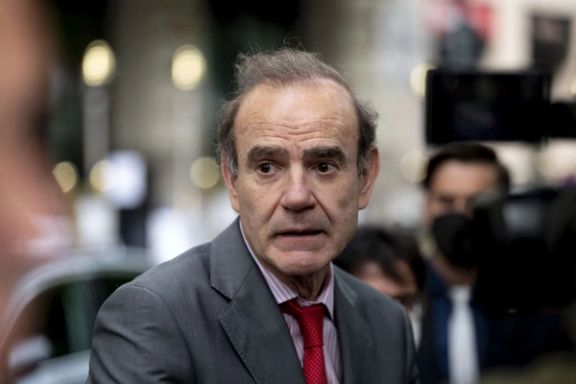
Iranian negotiators held talks with the deputy head of the EU’s External Action Service on Thursday, setting the stage for Friday’s negotiations between the Islamic Republic and the three European nations collectively known as the E3.
A meeting is scheduled for Friday between the three European signatories of the 2015 JCPOA nuclear accord—the United Kingdom, France, and Germany (E3)—and the Islamic Republic, with the participation of EU representative Enrique Mora, who met with the Iranian envoys.
Both sides issued posts on X briefly describing the discussions, with widely different accounts, except calling the exchange as frank.
The EU official, Mora, enumerated the issues he brought to the attention of Majid Takht-Ravanchi and Kazem Gharibabadi, both Iran’s deputy foreign ministers.
“Frank exchange with Iran Deputy FM @TakhtRavanchi and @Gharibabadi on Iran’s military support to Russia that has to stop, the nuclear issue that needs a diplomatic solution, regional tensions (important to avoid further escalation from all sides) and human rights,” Mora tweeted.
Gharibabadi, tweeting on behalf of the Iranian side, detailed a lengthy list of alleged mistakes and missteps by the European Union and European powers.
“It was reaffirmed to him [Mora] that EU should abandon its self-centered and irresponsible behaviour towards issues and challenges of this continent and international matters,” he said.
The Iranian diplomat accused the European side of deflecting its own problems and mistakes onto others, particularly regarding the war in Ukraine. European nations have strongly condemned Iran’s role as a weapons supplier to Russia and have imposed sanctions on numerous companies and individuals linked to Tehran’s government.
Gharibabadi also strongly criticized Europe’s stance on Iran’s nuclear program, as Paris, London and Berlin have adopted a tougher position, backing a recent censure against Tehran at a meeting of UN’s nuclear watchdog, the International Atomic Energy Agency.
“Similarly, with regard to the nuclear issue of Iran, Europe has failed to be a serious player due to lack of self-confidence and responsibility. Europe is in need of self-recovery,” the Iranian diplomat said.
Iran’s government-controlled media has projected a positive tone regarding the talks with the Europeans, as US sanctions pose increasingly difficult challenges for Tehran. However, Gharibabadi’s tweet does not reflect a more flexible Iranian position.
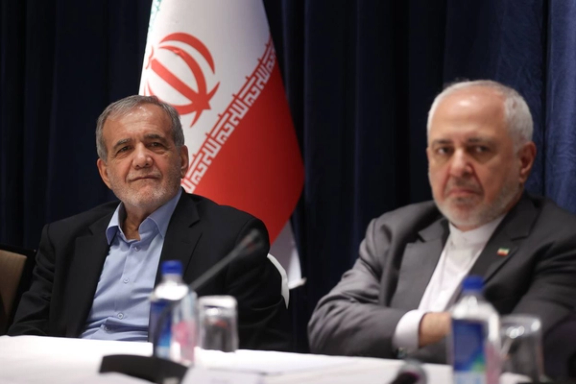
Former Iranian foreign minister and presidential adviser Mohammad Javad Zarif told the media in Tehran that Europe should step down from its "high horse" when dealing with Iran, just days ahead of a scheduled meeting with European countries.
"Dialogue can always be constructive, but the other side (the European Union) must abandon its superiority complex and its stance as the center of global norms," Zarif said.
"They must step down from this so-called 'high horse' they are riding and engage with the world as equals, recognizing that if anyone needs to be held accountable, it is them,” he added.
Islamic Republic diplomats are set to meet with their counterparts from France, Garmany, the United Kingdom and the European Union on Friday to discuss controversial issues including Iran’s nuclear program and the crisis in the Middle East.
The meeting takes place after the UN nuclear watchdog issued a censure resolution condemning its lack of transparency and violation of obligations under a 2015 nuclear deal.
Zarif was the main Iranian negotiator from 2013-2015 when the JCPOA nuclear agreement was being hammered out with the three European powers, the United States, Russia and China.
The Trump administration withdrew from the agreement in 2018, imposing sanctions, which led Iran to break the deal’s restrictions on uranium enrichment. Subsequent talks during the Biden administration failed to resurrect the accord, which many regard as dead and beyond repair.
Nevertheless, Zarif turned the blame to the US. "Iran has not withdrawn from the JCPOA; it has consistently declared its readiness to adhere to the agreement and has acted within its framework. However, the United States withdrew from the JCPOA and violated its commitments," he said, meaning re-imposing economic sanctions.
He added, "The foundation of any new agreement will undoubtedly be the JCPOA, an agreement that took months and perhaps tens of thousands of man-hours in Iran, the US, Europe, Russia, and China to negotiate. As the Europeans put it, it is one of the most significant diplomatic achievements in the world."
It has been clear for several years that the JCPOA cannot be revived without addressing Iran’s breaches of the original agreement. Iran has continued to improve and expand its uranium enrichment by deploying more advanced centrifuges. As far back as 2020, Rafael Grossi, the head of the UN’s International Atomic Energy Agency (IAEA), declared that a new agreement is needed.
In December 2020, Grossi, speaking at the IAEA headquarters, said, "I cannot imagine that they are going simply to say, 'We are back to square one' because square one is no longer there.”
Zarif’s remarks, published only by more reformist websites, come amid a concerted effort by conservatives in parliament to pressure President Masoud Pezeshkian into removing him from the government.
They cite a 2022 law barring dual nationals or individuals with spouses or children holding dual nationality from serving in "sensitive positions" such as advisory roles to the president. Hardliners argue that this restriction applies to Zarif, alleging that his son holds US citizenship.
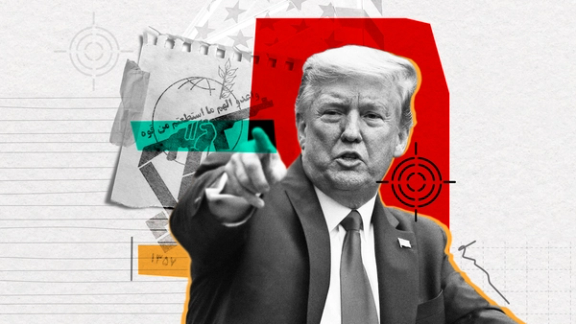
Politicians in Tehran seem optimistic about the possibility of restoring ties with the US after Donald Trump's election victory, with some volunteering to initiate talks regardless of their status and rank.
Ahmad Ajam, a member of the Iranian parliament who secured his seat with a modest share of votes in his constituency, is among those eager for dialogue. He has even proposed including a cease-fire in Gaza and Lebanon as a topic for talks, disregarding the risks faced by higher-ranking politicians who have suggested negotiations with US officials without the prior approval of Supreme Leader Ali Khamenei.
Foreign Minister Abbas Araghchi faced serious backlash after rumors emerged that Iran's chief diplomat in New York, Saeed Iravani, had engaged in secret talks with Trump advisor Elon Musk and even promoted investment in Iran. The hardliner daily *Kayhan*, closely aligned with Khamenei's office, sharply criticized Araghchi and went as far as accusing him of treason.
The news of the meeting, shared with The New York Times by two unnamed Iranian officials, was likely an attempt to gauge reactions from Khamenei and the IRGC, the key power brokers in Iran's government, to see if they would support or oppose the proposal. Critics also accused Araghchi of being complicit with former Foreign Minister Javad Zarif, who negotiated the 2015 nuclear deal, which hardliners claimed primarily benefited the West.
On Sunday, 207 of Iran's 290 lawmakers approved the urgency of a bill calling for the dismissal of officials like Javad Zarif, whose children allegedly hold US citizenship. Iranian media report that the bill is specifically aimed at Zarif within the government.
Amid this, Ebrahim Asgharzadeh, a leader of the 1979 US embassy takeover in Tehran, in which over 50 US diplomats were held hostage, told a Tehran news outlet that "with or without negotiations with Trump, time is against Iran."
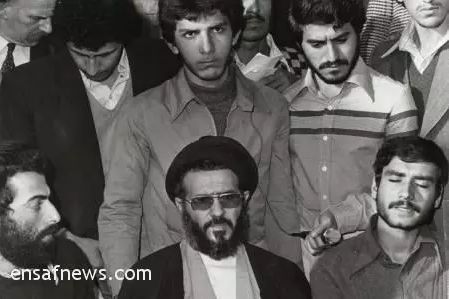
Asgharzadeh emphasized that "only innovative talks on equal footing with the United States can shift the situation in Iran's favor," while noting that "even confidence-building with China and Russia is no longer sufficient to help Iran." Now regarded as a Reformist figure, he reiterated that "dismantling the security net surrounding Iran could potentially end its dangerous isolation and pave the way for the country’s development."
He further warned that "provocative slogans and ambitious claims will surely rally the world's public opinion against us." A good example of such provocations and ambitions was Kayhan’s article that said, "If rumors about the meeting between Musk and Iravani were true, it would have been a dangerous and damaging development that would have undermined Iran's dignity and authority."
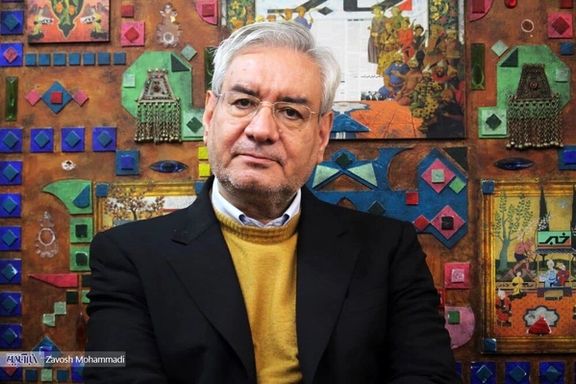
Kayhan previously accused Reformists and centrists in Iran of attempting to portray Trump as having changed since 2016, suggesting that engaging in talks with him could be Iran's path out of isolation. The publication claimed that US administrations are convinced they can extract concessions from Iran by encouraging Iranians to rise against their government, as seen in the numerous protests since 2018.
In his interview, Asgharzadeh warned that time is running out and that persisting with outdated policies will not benefit Tehran. He emphasized that Iran's primary challenge lies with the United States, a conflict he believes poses a threat to the Islamic Republic's very existence. Asgharzadeh noted that in its dispute with the US, Iran adopts a confrontational stance toward a third country, Israel, while simultaneously advocating for the rights of a fourth, the Palestinians.
The reformist figure argued that while Iran claimed President Masoud Pezeshkian's victory in the July election signaled a shift toward change and readiness for rapprochement with the West, the decision to invite Hamas leader Ismail Haniyeh to his inauguration undermined that message.
He observed that Trump aims to establish a new order in the Middle East and cautioned that, under the current circumstances, any action provoking a US military strike on Iran could devastate the country's economy and infrastructure, potentially triggering a domestic revolt. Instead, he advocated for a strategy of creative diplomacy to minimize the risk of military aggression against Tehran.
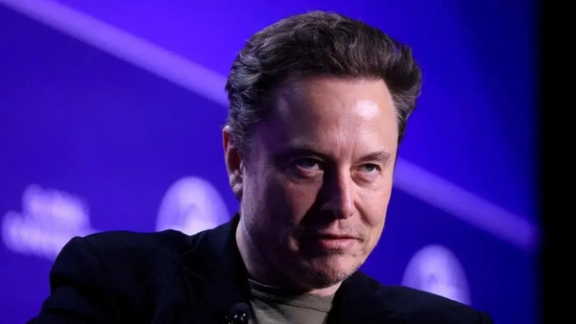
Iran's Foreign Ministry on Saturday denied reports of a meeting between Trump advisor Elon Musk and its UN representative, dismissing it as "media sensationalism" by American outlets, two days after the story first surfaced.
Earlier, when questioned about the issue, a representative from Iran's UN Mission in New York responded, "We have no comment on this matter," according to Iranian state media on Friday.
The foreign ministry spokesman who issued the denial on Saturday, according to the government news website IRNA, did not comment further except expressing his surprise at the "extensive" media coverage.
The initial report raised significant questions about President-elect Donald Trump's Iran policy, specifically whether he plans to intensify pressure on Tehran or pursue dialogue to ease tensions in the Middle East.
The Associated Press, quoting an unnamed American official, confirmed that the talks, held on November 12, were requested by the Islamic Republic, while the initial report had said the request came from Musk.
According to reports, the discussion spanned key geopolitical issues, including Iran’s nuclear program, its regional alliances with proxies, and the possibility of reducing tensions with the United States.
“The official, who spoke on condition of anonymity to discuss a non-US governmental meeting, said no immediate decisions were taken by either side. The official said the Iranians sought the meeting with Musk, the world’s richest man, and that it did not take place at the Iranian mission to the UN,” wrote AP on Saturday.
The New York Times, which first broke the story, presented a slightly different account, saying Musk himself initiated the meeting, held at a location chosen by the Iranian side.
The official also told AP that no concrete agreements emerged, and both governments have refrained from commenting on the discussions.
Neither Elon Musk nor President-elect Donald Trump's team has refuted the report, indicating that it could be an early move by the incoming administration to establish communication and engage with the Islamic Republic.
Divided reactions in Tehran
In Iran, the meeting has provoked sharply contrasting reactions. The ultra-hardline Kayhan newspaper financed by Supreme Leader Ali Khamenei's office, overseen by Hossein Shariatmadari, a representative of Supreme Leader Ali Khamenei, vehemently opposed the talks. In an editorial, Kayhan dismissed the meeting as outside the authority of Iranian officials to pursue, especially given Musk’s ties to Trump. The paper wrote:
“Based on all legal principles, the blood of General Qasem Soleimani remains on the hands of Trump and some members of his administration. No one in Iran can absolve the criminal Trump or provide guarantees to the American side that the perpetrators of the martyrdom of Soleimani will not be punished.”
Ahmad Zeidabadi, a reformist commentator, responded to Kayhan saying, “Kayhan's opposition to the meeting between Elon Musk and the representative of the Islamic Republic in New York is completely natural, as this event took place during the presidency of Masoud Pezeshkian!”
If this event had occurred during the presidency of Mahmoud Ahmadinejad or the late Ebrahim Raisi, added Zeidabadi, “Kayhan would have presented it as a diplomatic masterpiece or an unprecedented victory and, in response to potential criticisms, would have written: ‘The vile critics and opponents cannot bear to see the success of the government!’”
Meanwhile, Sobh-e-No, a newspaper aligned with Iranian Parliament Speaker Mohammad Bagher Ghalibaf, took a more measured tone. It highlighted the potential benefits of Musk’s close relationship with Trump.
“Musk’s unofficial role could complement Trump’s unconventional diplomatic strategies, offering a chance to bypass traditional government structures,” Sobh-e-No argued, pointing to Musk’s ability to leverage his influence with the incoming administration.
The reformist daily Ham Mihan highlighted that "the strategy of the Iranian diplomatic team is on track and has received a positive and reciprocal response from the American side."
And, Sazandegi, another reformist publication, viewed the meeting as a sign of Iran engaging in covert diplomacy with the United States.
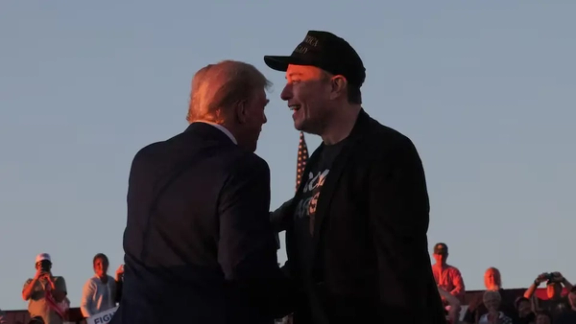
Musk’s role as a diplomatic outsider
The meeting shows Musk’s expanding presence in global geopolitics, an unusual role for a figure best known for his business ventures. His close ties to Trump have positioned him as a potential intermediary in high-stakes negotiations.
Trump’s communications director, Steven Cheung, declined to confirm the meeting, reflecting the cautious approach both sides are taking in managing the fallout.
Karoline Leavitt, a spokesperson for Trump’s transition team, emphasized the administration’s focus on restoring US leadership on the global stage.
“The American people re-elected President Trump because they trust him to lead our country and restore peace through strength around the world. When he returns to the White House, he will take the necessary action to do just that,” she said.
Uncertain outcomes
While the meeting - now denied by Tehran - hints at exploratory efforts to address decades-long hostilities between Iran and the US, the practical implications remain unclear. Iranian unnamed officials in interviews with The New York Times described the talks as “good news,” but no immediate breakthroughs were announced.
For now, the diplomatic overture is a reflection of both the entrenched challenges and the rare opportunities for engagement between the two nations.
Musk, who has not commented publicly on the meeting, continues to shape his evolving role in US policy under Trump’s leadership.